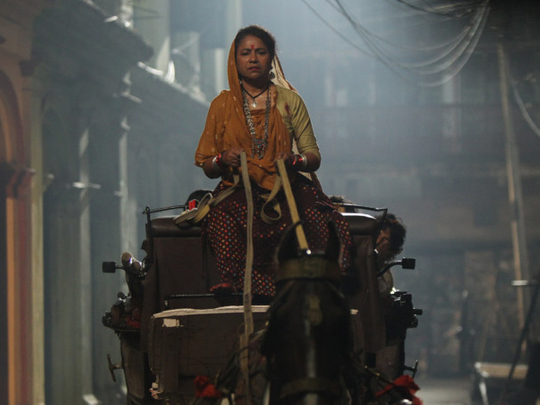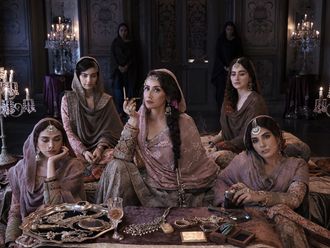
National Award winner, Seema Biswas, who shot to fame with Shekar Kapoor’s Bandit Queen, plays a transgender person in Balyakalasakhi, also starring Mammootty and directed by Pramod Payyanur.
Payyanur’s film is an adaptation of noted Malayalam writer Vaikkom Mohammad Basheer’s novel of the same name. The tragic love story has Mammootty playing a dual role — that of a character called Majeed — and his father.
In Balyakalasakhi, Biswas plays Selvi, a transgender individual from Tamil Nadu, who befriends Majeed in Kolkata.
Isha Talwar plays Suhara, Majeed’s lover.
For Biswas, this is her third film in Malayalam, the last one being the Jayaraj-directed, award winning film Shantam.
“When Pramod came to me with the script, I found the role interesting,” says Biswas.
“For every character that I play, I like to understand her mental frame, so I write the autobiography of my characters. I did the same for Selvi,” reveals this graduate from the National School of Drama.
“I also wanted to steer away from the mannerisms often used to depict a transgender in our films. I did not want to make Selvi an object of ridicule,” explains Biswas.
“Her mannerisms had to be controlled. Selvi shares a good friendship with Majeed, helping him during hard times.”
Referring to Mammootty as “a great master in acting”, she added that it was a pleasure watching the spontaneous and dedicated actor at work.
“I am happy that I had the honour of sharing screen space with him.”
Talking about her director, she said: “Pramod is a quiet gentleman and a cool-headed person, who was determined to extract what he wanted from his actors.”
Currently busy with three films in Bollywood, namely Charfuttiya Chokre, Jai Ho Democracy and Sher, Biswas also finds time for her first love, the stage.
Streer Patra, based on renowned Bengali writer Rabindranath Tagore’s short story, has been directed by her. Biswas also plays the protagonist, Mrinal, who writes a letter to her husband when she decides to leave him.
“This story highlighted the social ills facing women in our society in the pre-independence era,” says Biswas, “yet is relevant today.”











